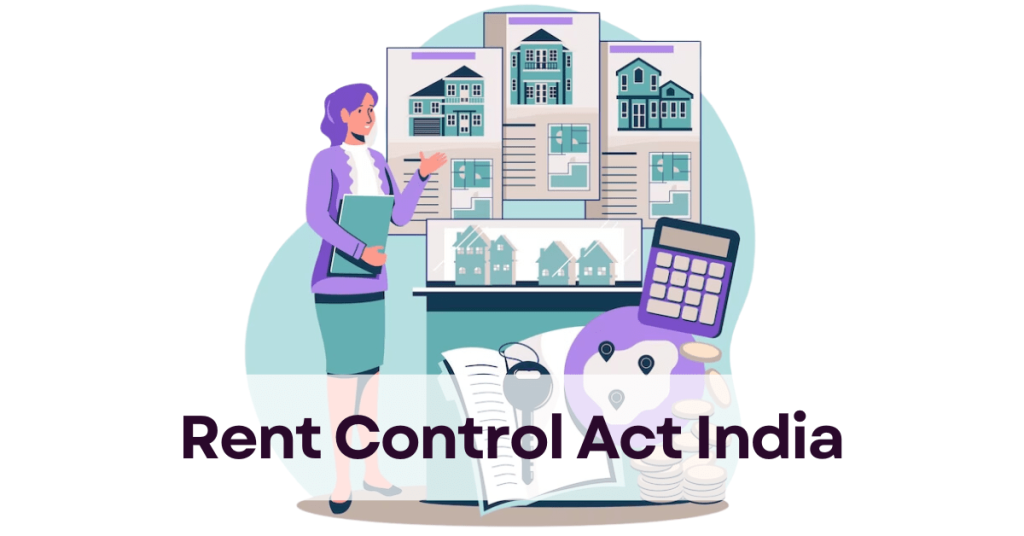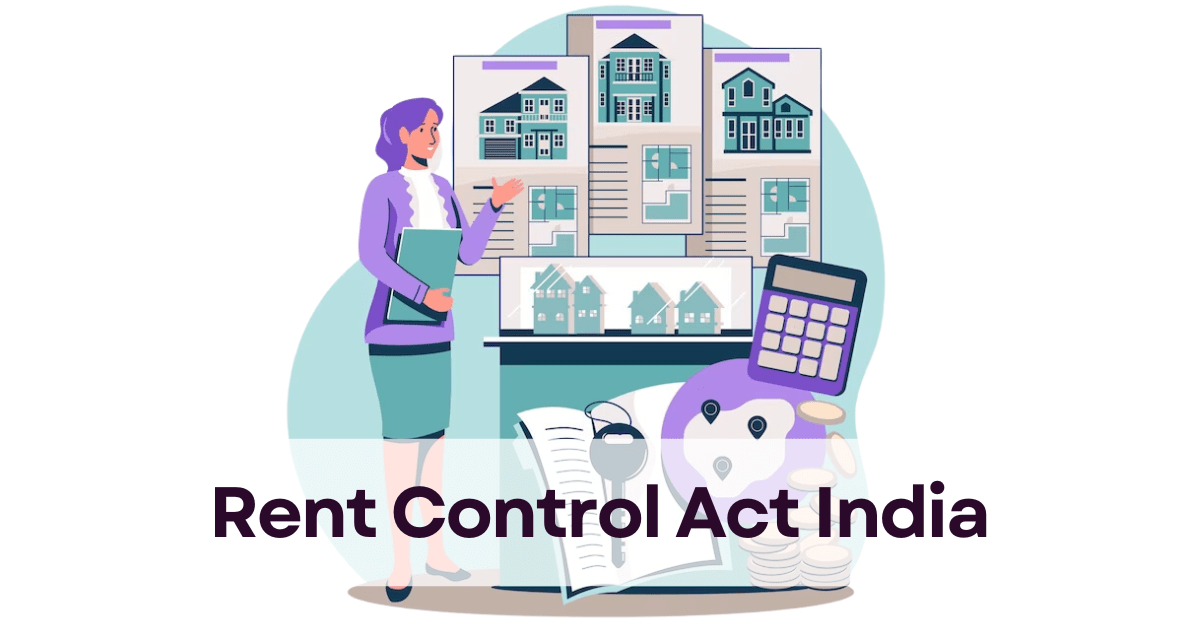
Table Of Content
- When was the Rent Control Law introduced in India?
- Non-Applicability of the Rent Control Act
- Features of the Rent Control Act India
- Legal Rental Rights of Tenants & Landlords in Rent Control Act of India
- What does illegal eviction of tenants mean according to the rent eviction law India?
- Grounds to Evict a Tenant in India under the Rent Eviction Law
- Frequently Asked Questions
India is a diverse country with a multi-tiered economic and residential system. Crores of people who do not own any residential property in the country, and thus have to rent homes owned by someone else. While giving out any of your property on Rent an individual needs to be really careful about whom you are ending up with. In order to avoid any kind of dispute later between the parties one should keep in mind all the rules and regulations which are given under the Rental Control Act in India.
The Rental Control Act governs the main provision such as the control of the rent, insurance and privileges to the landlord and the tenant at the same time. In order to get a detailed description about the Rent Control Act, It;s time to dig into the meaning and detail features of the Rent Control Law India.
When was the Rent Control Law introduced in India?
The Rent Control Law was introduced in India to letting out the properties in rent and also to avoid any kind of exploitation on the parts of tenants and the landlords. Well, each state has its own act which is somewhere differ from each other. There were alot of amendments that took place with this Act as well. In the year 2021, the central government amended the Rental Agreement Act of 2019 and issued a Model Tenancy Act 2021 which was approved by the cabinet and all the states and union territories of India.
Despite all the inflation, amendments still some of the homes rented out since 1948 they continue to pay the same rent. Only 4 states of UP, Tamil Nadu, Assam and Andhra Pradesh, have aligned their local rental laws with the provisions of the Model Tenancy Act, the Rajya Sabha was informed, on July 25, 2022.
Non-Applicability of the Rent Control Act
There are certain cases where the Rent Control Act is not applicable when the property has been let out. They are:
- Property let out to private limited or public limited companies with a paid-up share capital of Rs 1 crore or above.
- Property let out or sub-let to public sector undertakings, banks or any corporation established under any state or central Act.
- Property let out to foreign companies, international missions or international agencies.
Features of the Rent Control Act India
The aim of the Rent Control Act is to regulate the increase in rentals and safeguard the rights of both the tenant and the landlord. Some the most important features of the rent Control Act of India are mentioned below:
- By virtue of the Rent Control Act, different laws have been legislated and these laws play a pivotal role in helping the tenant to identify a particular property for the purpose of accommodation.
- The Rent Control Act provides a fair amount of control has been established on the rentals that are charged by the landlord while renting out a particular property to the tenant.
- By virtue of the Rent Control Act, the tenants enjoy the security aspect as they cannot be forcefully evicted by the landlord unless under extraordinary circumstances.
Legal Rental Rights of Tenants & Landlords in Rent Control Act Of India
In Indian Rent Control Act, both the parties landlord & Tenant have given their rights. Some of the major right of both parties are mentioned below:
Rights of a Tenant
- Right to challenge unfair eviction: As per the Rental Housing Law, a landlord cannot evict a tenant without any reasonable cause. The laws might differ from state to state, but the baseline personalities remain the same.
- Right to demand fair rent: The landlord cannot charge an intoxicant rent from the tenant with his or her knowledge. The rent must be decided as per the valuation of the property. If the tenant feels that the amount being demanded is out of line, they can make a claim in court of law.
- Right to demand fulfillment of essential services: Tenants deserve the right to water, electricity, and sewage facilities in every house. The landlord cannot withdraw from these services. Landlords also cannot withhold these services if the tenant has failed to pay rent.
Rights of a Landlord
- Right to evict: Landlords hold the right to evict tenants after the completion of the lease or due to any personal and bona fide reason. The rights differ in each state. For example, wanting to occupy the home for themselves is a legal reason to demand eviction in most states but not Karnataka. Landlords must also serve the tenants sufficient notice before enforcing their eviction rights.
- Right to charge rent: Landlords have the right to charge rent from tenants because there is no upper limit on rent in most places. The amount depends on the landlords and the market stipulation. The rent is always settled beforehand and goes into writing before enforcement of the Rental Agreement.
- Right to gain temporary repossession of property: The landlord has the right to repossess the property and bring forth necessary changes to the place, including its interior. Such changes, however, should not affect the living standards of the tenant. Also, it should be in violation of the agreed-upon rental agreement.
What does illegal eviction of tenants mean according to the rent eviction law India?
According to the Rent Eviction Law in India, An illegal eviction of tenancy and it typically happens when a landowner forbids a tenant from entering a rental property or removes the tenant’s belongings from the property through the use of force, intimidation, or other methods (such as cutting off utilities or changing the locks). However, if the landowners evict you without taking the proper legal action, they are breaking the law.
There are numerous cases, where the landlord files a legal notice of eviction on the false grounds. However, in all such cases the rent control act provides a remedy to the tenant.
Grounds to Evict a Tenant in India under the Rent Eviction Law
The Indian rental rule allow landlords to bring an eviction suit against a tenant provided there is justified and valid grounds for doing so. In India, the following are the grounds for evicting a tenant:
- The renter has purposefully failed to pay the agreed-upon rent for more than 15 days beyond the due date.
- The renter has leased a rental property to a third party without authorizing the landlord or submitting a formal request.
- The renter has utilized the rented property for illegal purposes or reasons not specified in the rental agreement.
- Any action taken by the renter has resulted in a decrease in the property’s value or usability.
Frequently Asked Questions (FAQs)
It is said under the act that A local consumer court has ruled that a person, who had taken an apartment on lease to reside for 11 months, is not defined as a consumer and cannot get protection under the Consumer Protection Act 1986.
Yes, a standard amount of rent is fixed under the Rent Control Act. Since the Rent Control Act was brought into action by the government of India to curb the increasing cases against landlords and tenants of disputes and fixed the rent under the act.


